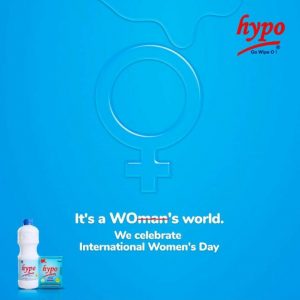Yesterday marked another international women’s day. A day supposedly set apart for women to be celebrated, celebrate each other, and rally for systems to be put in place to ensure that women worldwide are treated as human beings equal to their male counterparts. But, as with many other discussions around gender and womanhood, misunderstandings and misrepresentations are expected. Still—albeit a little funny— it was appalling to see how much ignorance still surrounds the discourse of womanhood and equality.
Many organizations put out content on their websites and social media accounts to show their “support” for their female workers and other women all over the world, but what most of them ended up doing was buttressing the fact that as a nation, we still have a long way to go both in our perspective and treatment of women. Many of these brands created these international women’s day content as afterthoughts. This fact is clear in the obvious lack of planning that went into their execution.


Companies where female staff are paid less than their male colleagues for the same jobs jumped on the bandwagon of wishing “their” women a happy international women’s day just to avoid being left out. Other organizations that overlook the sexual harassment of their female staff and avoid hiring them rather than creating a work environment conducive to women also followed the trend.
Just recently, the Nigerian National assembly rejected five gender equality bills. These bills all aimed to fight against the discrimination of women in Nigeria by giving them equal rights as men and producing more opportunities for women to partake in important decision-making processes in the nation.
One of the five bills sought to grant Nigerian women the right to transfer their citizenship to their foreign-born husbands, while another demanded that 35 percent of Nigeria’s legislative seats be assigned to women as well as 35 percent of political party leadership. The unreasonable refusal of the Nigerian house of assembly to consider and grant even one of the five bills—all of which should already be in existence— goes to show what little regard Nigeria has for its women.
The Nigerian lower house of parliament rescinded their initial decision yesterday, after the ensuing protests. They promised to revisit three out of the five bills. Unfortunately, the equality bill is not among the three as it has been rejected for the third time since its introduction in 2016. The senate’s reaction is perhaps not as surprising as it should be, as one can only expect so much from parliament with 95.9 percent male membership.
We can post fliers and write catchy headlines that contain all the right words. We can push smiling women to the front of the company photos and act like they matter. Still, as long as women have to grovel to get even the smallest iota of respect and humane treatment. As long as their value is only seen in association with men— as sisters, wives, and mothers rather than human beings with agency over their own being—every international women’s day and other days like it will be nothing more than meaningless posturing.

